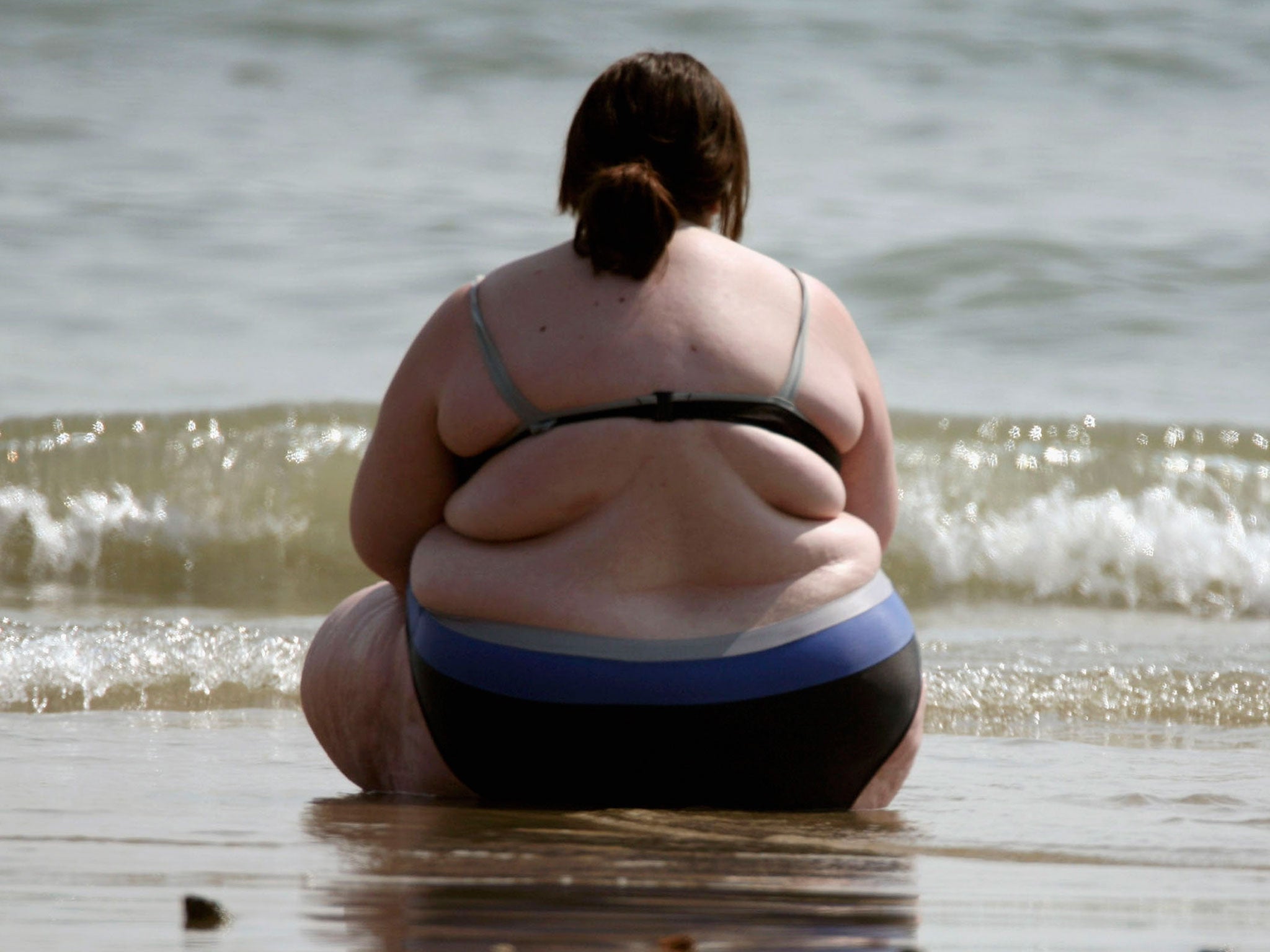Finally, a study that confirms what I knew all along: fat acceptance is good for our health
As a fat woman who preaches body positivity, I've been accused of 'encouraging obesity' many times. But the latest evidence shows this isn't true at all

Your support helps us to tell the story
From reproductive rights to climate change to Big Tech, The Independent is on the ground when the story is developing. Whether it's investigating the financials of Elon Musk's pro-Trump PAC or producing our latest documentary, 'The A Word', which shines a light on the American women fighting for reproductive rights, we know how important it is to parse out the facts from the messaging.
At such a critical moment in US history, we need reporters on the ground. Your donation allows us to keep sending journalists to speak to both sides of the story.
The Independent is trusted by Americans across the entire political spectrum. And unlike many other quality news outlets, we choose not to lock Americans out of our reporting and analysis with paywalls. We believe quality journalism should be available to everyone, paid for by those who can afford it.
Your support makes all the difference.As a fat positive activist my goal, first and foremost, is to advocate body love for all shapes and sizes. Instead, doing this as a fat woman, I am often subjected to accusations of ‘glorifying obesity’.
Thank the Lord, then, for the widely reported study this week which found that obesity awareness may actually be causing people to overeat. The message is clear: put a laser focus on people’s bodies, talk about them constantly and frame their weight as a problem, and they will respond with stress activity. The widespread ‘awareness’ we’re all now supposed to have of our waistlines may actually be contributing to the so-called obesity crisis.
Many subscribe to the narrative that fat women and men simply cannot be happy with their bodies. So sure are these (mostly thin) people of their correctness that they believe those who declare love for their fat bodies are sad, deluded types who refuse to see the implications their size might have on their health. Nevertheless, it seems that we now have some solid evidence to support the idea that fat acceptance and body love are inherently linked to shaping a more healthy and positive lifestyle. The study, conducted by Eric Robinson of the Institute of Psychology at Liverpool University, shows that feelings of discrimination may be causing overweight people to comfort eat, therefore leading to weight gain. So perhaps – just perhaps – public humiliation isn’t the way to encourage healthy attitudes, after all.
As a fat woman, I can consciously recognise that being tagged with words such as ‘overweight’ or ‘obese’ – words so often seen in conjunction with ‘laziness’ and ‘stupidity’, as well as spurious claims about putting the NHS under strain – affects a person’s food and exercise choices. When fat people are mocked and ridiculed – which they often are – when giving exercise a shot, or picking out a salad at the cafeteria, is it any surprise that we choose to hide away at home with snacks and the TV for company? ‘People with a heavier body weight have body image challenges,’ Robinson states, ‘…[these challenges] are not surprising given the way we talk about weight and fat and obesity as a society.’ Negativity begets negativity.
On the flipside of this, the results of Robinson’s study show that acceptance of one’s shape would contribute more positively to the health and lives of those with body sizes outside of the realms of perceived ‘normality’ and social acceptability. Fat acceptance does not encourage people to be unhealthy: fat acceptance gives people the opportunity to cast off those constant negative jibes. It offers a space where fat people are allowed to be comfortable with their bodies, and to work from there – whether that means maintaining the same shape or changing it.
As Robinson’s study states, when comfort is found and a positive relationship is established with one’s body, fear of judgement dissipates and fat people are more likely to ignore the learned societal discrimination against them. Once they are liberated from this prejudice, they are much more prepared and able to make subconscious inroads into exploring a more positive relationship with their bodies. This naturally leads to a positive interest in healthy habits.
In a world of airbrushed Instagram photos, magazines packed with diets and websites chockablock with ‘thinspiration’, there is only so much we can do in the fat acceptance movement to help people to push back. But with studies such as Robinson’s suggesting that there are serious, tangible benefits to fat people beginning a positive conversation with their bodies, the tide seems to be turning in our favour. We’ve long been saying that fat acceptance is a movement that’s positive for the body and the mind. Now that science has started to back us up, perhaps those who say we’re encouraging unhealthy lifestyles will stop dominating the narrative.
Join our commenting forum
Join thought-provoking conversations, follow other Independent readers and see their replies
Comments